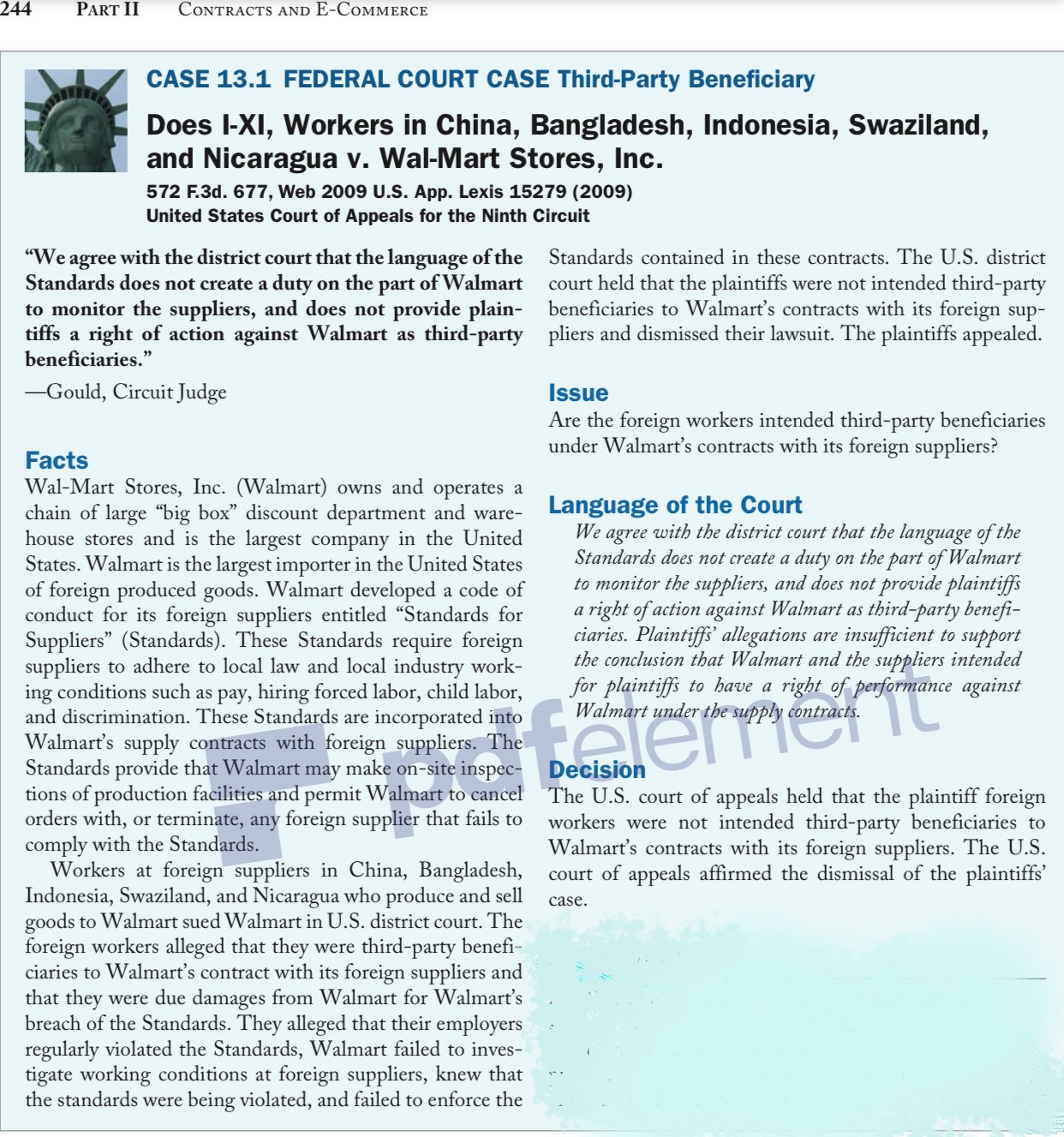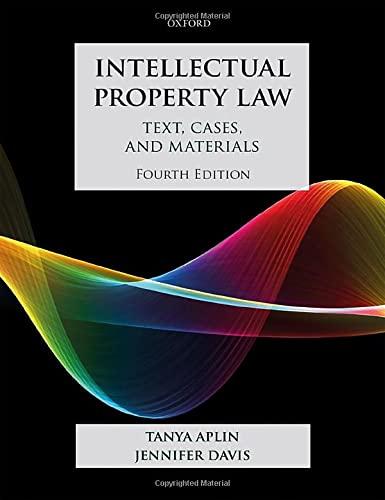Using the rules about third-party beneficiaries, can the plaintiffs successfully sue Wal-Mart?
244 PART II CONTRACTS AND E-COMMERCE CASE 13.1 FEDERAL COURT CASE Third-Party Beneficiary Does I-XI, Workers in China, Bangladesh, Indonesia, Swaziland, and Nicaragua v. Wal-Mart Stores, Inc. 572 F.3d. 677, Web 2009 U.S. App. Lexis 15279 (2009) United States Court of Appeals for the Ninth Circuit "We agree with the district court that the language of the Standards contained in these contracts. The U.S. district Standards does not create a duty on the part of Walmart court held that the plaintiffs were not intended third-party to monitor the suppliers, and does not provide plain- beneficiaries to Walmart's contracts with its foreign sup- tiffs a right of action against Walmart as third-party beneficiaries." pliers and dismissed their lawsuit. The plaintiffs appealed. -Gould, Circuit Judge Issue Are the foreign workers intended third-party beneficiaries Facts under Walmart's contracts with its foreign suppliers? Wal-Mart Stores, Inc. (Walmart) owns and operates a chain of large "big box" discount department and ware- Language of the Court house stores and is the largest company in the United We agree with the district court that the language of the States. Walmart is the largest importer in the United States Standards does not create a duty on the part of Walmart of foreign produced goods. Walmart developed a code of to monitor the suppliers, and does not provide plaintiffs conduct for its foreign suppliers entitled "Standards for a right of action against Walmart as third-party benefit Suppliers" (Standards). These Standards require foreign ciaries. Plaintiffs' allegations are insufficient to support suppliers to adhere to local law and local industry work- the conclusion that Walmart and the suppliers intended ing conditions such as pay, hiring forced labor, child labor, for plaintiffs to have a right of performance against and discrimination. These Standards are incorporated into Walmart under the supply contracts. Walmart's supply contracts with foreign suppliers. The Standards provide that Walmart may make on-site inspec- Decision tions of production facilities and permit Walmart to cancel orders with, or terminate, any foreign supplier that fails to The U.S. court of appeals held that the plaintiff foreign comply with the Standards. workers were not intended third-party beneficiaries to Workers at foreign suppliers in China, Bangladesh, Walmart's contracts with its foreign suppliers. The U.S. Indonesia, Swaziland, and Nicaragua who produce and sell court of appeals affirmed the dismissal of the plaintiffs' goods to Walmart sued Walmart in U.S. district court. The case . foreign workers alleged that they were third-party benefit ciaries to Walmart's contract with its foreign suppliers and that they were due damages from Walmart for Walmart's breach of the Standards. They alleged that their employers regularly violated the Standards, Walmart failed to inves- tigate working conditions at foreign suppliers, knew that the standards were being violated, and failed to enforce the







